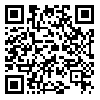Volume 3, Issue 2 (2015)
CLRJ 2015, 3(2): 237-262 |
Back to browse issues page
Download citation:
BibTeX | RIS | EndNote | Medlars | ProCite | Reference Manager | RefWorks
Send citation to:



BibTeX | RIS | EndNote | Medlars | ProCite | Reference Manager | RefWorks
Send citation to:
Houshangi M, Ghobadi H A, Fouladvand H. A Comparative Look at the Concept of Music and Sama in the View of Rumi and Nietzsche”. CLRJ 2015; 3 (2) :237-262
URL: http://clrj.modares.ac.ir/article-12-6250-en.html
URL: http://clrj.modares.ac.ir/article-12-6250-en.html
1- Ph.D. student of Persian language and literature, Tarbiat Modares University, Tehran, Iran
2- Professor of Persian Language and Literature, Tarbiat Modares University, Tehran, Iran
3- Professor of Persian Language and Literature, Tehran, Iran
2- Professor of Persian Language and Literature, Tarbiat Modares University, Tehran, Iran
3- Professor of Persian Language and Literature, Tehran, Iran
Abstract: (7082 Views)
Music and Sama are amongst the most discussed elements in the history of Islamic mysticism and sufism. Rumi’s standing on this subject was close to the intoxicated sufis. He favoured it, promoted it and believed it to be one of the main pillars of the mystic path and journey to Allah.
In the cultural sphere of the 19th-century Europe, Nietzsche, influenced by the East, and having a unique way of looking at the concept of excellence and human movement towards evolution, in order to save the alienated human kind who due to the weakness of the church has forgotten the God, brings in music as a principle in human evolution and salvation, which is very close to the Rumi’s idea of music. The two thinkers share paradigms of thought in a) familiarity, identification and the origins of thought, b) the relation of music to the eternal song of the universe, c) music as a way to catharsis and soul purification, d) the relation between music and language, and e) the relation of music to passion and ecstasy and the Nietzschean idea of affirmation. All these lead us to the conclusion that the two thinkers had very close, and sometimes, matching ideas about the origin, existence, function, and effects of music, yielding to a substantive connection.
Received: 2013/10/12 | Accepted: 2014/06/23 | Published: 2015/09/23
| Rights and permissions | |
 |
This work is licensed under a Creative Commons Attribution-NonCommercial 4.0 International License. |








